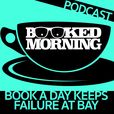Episode 43 - Review and Summary of Extreme Ownership by Jocko Willink and Leif Babin

Summary: Whenever we hear about the NAVY Seals, what comes to mind, is that they are one of the highest performing teams in the world. Another thing SEALS are well known for is producing great leaders. I remember when I was young, watching, Undersiege with Steven Seagal, playing US Navy Seal Captain Casey Ryback. Even if that was fictional, I had been fascinated and admired SEALS in their determination and character to lead and win and to sacrifice themselves for their team. Yesterday’s book review “Leaders Eat Last”. I felt was the right lead into this book. Focusing on the Marine Officers lesson of leaders sacrificing themselves. Today’s book, focuses on extreme responsibility or 100%, not 95 or 99. 100% responsibility. The two authors, Jocko Wilink and Leif Babin, both decorated combat vets who fought in one of the toughest war zone of the 21st century, in Ramadi Iraq. By using their experiences as a SEAL leaders, they share lessons that can aid any leader in any role. Jocko wrote in the book that he realized during his 20 years as a SEAL that, "Just as discipline and freedom are opposing forces that must be balanced, leadership requires finding the equilibrium in the dichotomy of many seemingly contradictory qualities between one extreme and another." By being aware of these seeming contradictions, a leader can "more easily balance the opposing forces and lead with maximum effectiveness." There are so many lessons and inspiring stories in the book, but let us focus on my main take aways and lessons from Jocko and Leif. So lets dive in. The Dichotomy of Sucessful Leadership presented in the book. Leadership requires a balance between seemingly opposite traits: - We Must lead but also be able to follow, its important that we put aside our ego to follow better ideas and those who take charge. - Remain Calm, but not robotic.We need to be Logical but not devoid of emotions. Team members must know we care. Leaders who lose temper, also lose respect. People do not follow robots. - We Must be Brave but not reckless. We must Mitigate risks that can be controlled. - Be Aggressive but not overbearing. Courageous but not foolhardy. Strong but also with physical and mental endurance. - Close with subordinates but not too close. Know our people and their motivations. But not so close than one member becomes more important than another, more important than the mission. - Confident but never cocky. Confidence is contagious. Overconfidence causes complacency and arrogance. - Have a competitive spirit but also be a gracious loser. Push our team to perform at the highest levels but never put their own drive for personal success above mission success. - Attentive to details but not obsessed by them. A good leader does not get bogged down in the minutia of a tactical problem at the expense of strategic success. - Quiet but not silent. We are expected to Speak up when it matters. - Humble but not passive. Act with professionalism and recognize others for their contributions. The leader is in charge. Able to execute extreme ownership while exercising de-centralized command. - Finally, Exercise Extreme Ownership. Recognize limitations. Admit mistakes and take ownership of mistakes.
